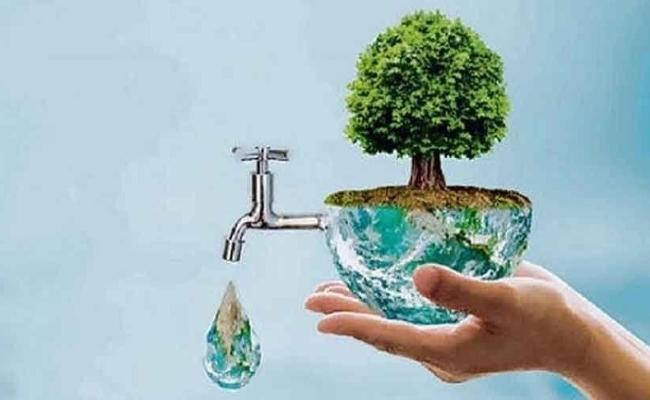Delivery of Basic Social Services is Helping India progress on Path of Sustainable Development

Sustainable development has come to be defined by the movement of a country towards the gradual attainment of United Nations’ 17 sustainable development goals. Efforts for inclusive and equitable growth are looked at and monitored through this lens.
Over the past few years, India has been working in a concerted way to propel itself on the path of sustainable development. In our quest for pro-planet progress, we are working to address health issues by augmenting infrastructure and enabling access to healthcare and allied basic services for citizens at the very last mile. This approach can drastically improve not just the health parameters but also the economic prospects of millions of Indians.
There are a few examples of infrastructure augmentation that I would cite to make my point. The availability of clean water is a fundamental right. An independent study by Nobel prize winning economist Michael Kremer has concluded that the provision of clean drinking water reduces child mortality by 25-32%.
Around 38 million Indians are affected by water borne diseases annually. Provision of clean drinking water is therefore foundational to our very survival.
Started around three years ago, the Jal Jeevan Mission aims to provide drinking water through individual tap connections by 2024 to all households in rural India. The mission has transformational potential. Around 52% of rural households currently have tap water connections, up from 17% in August 2019. Burhanpur district in Madhya Pradesh is in fact the first ‘Har Ghar Jal’ certified district in the country. Connectivity to potable water is revolutionary in that it has helped arrest school drop-out rates among girls in rural India. It has reduced drudgery and dramatically improved the ease of living of adolescent girls, women, and the elderly. By preventing water-borne diseases, the Jal Jeevan Mission is also saving medical costs for nearly 10 crore rural households.
There is still ground to cover as the remaining rural households are to be connected to potable tap water by 2024. The government is resolute as it has set a deadline of September 30, 2022, for all states to complete planning of work under the Jal Jeevan Mission.
Subsequently, all works under the project will have to be awarded by December 31, 2022. The central government is aiding state administrations in implementing the scheme, helping them with everything from securing multi-agency approvals to lay pipelines, to providing them financial and technical assistance in providing tap water connections to households in even the most distant rural communities. Under the Har Ghar Jal Utsav, the center is now encouraging the state governments to certify districts with all households having tap water connectivity as Har Ghar Jal districts.
Disease control and eradication is another area that is getting attention. The government of India has set 2030 as the deadline to eliminate both AIDS and malaria. There has been a 66% decline in the estimated number of annual new HIV infections in the country from 2000 to 2015, against the global average of 35%. AIDS related deaths declined by 54% from 2007 to 2015 against the global average of 41% decline between 2005 and 2015.
We must now sound the battle cry in malaria elimination. India has the world's highest malaria burden. Organizations like Malaria No More are fueling the fight to end malaria in India by ensuring we continue to prioritize malaria elimination. Increased private sector participation that drives continuous technological innovation in tracking and reporting malaria cases will be key.
India has poor reporting of malaria cases, and therefore a large hidden malaria burden. This is because a whopping 70% of patients avail healthcare services from private clinics and hospitals, which are not responsible for collecting information about the infected population. Currently, the surveillance and reporting of malaria is carried out by malaria clinics, Community Health Centers, Primary Health Centers, and other government-run institutions. We must urgently create a centralized reporting system that is open for private and government-run facilities alike. While gathering data from informal private clinics, especially in tribal and rural regions can be challenging, authorities must work to ensure effective real-time monitoring and surveillance.
We live in challenging times – times when the world is facing everything from a war to widespread inflation and a looming shortage of food. It is therefore heartening to note that India is doing better on sustainable development than a lot of other countries. We are working with drive and a sense of urgency to pull people out of ill health and poverty sustainably. But we mustn’t get complacent as our task is cut out. What various stakeholders need to do is work in closer coordination to devise solutions that drive inclusive and sustainable development.
—Dr. Aatish Parashar, Dean and Head, Central University of South Bihar





